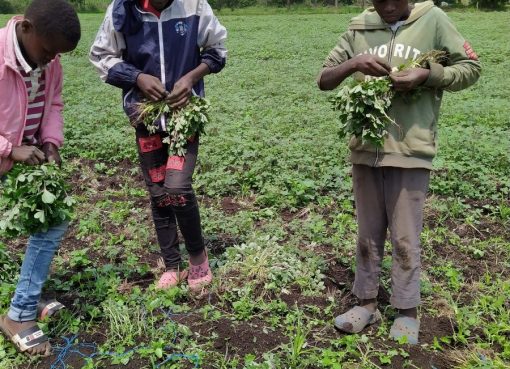Following an outcry by a section of Tharaka Nithi residents over the invasion of their crops by what they described as little known pests, farmers in Meru South Sub-county have been advised to remain calm since the government is aware and a recipe for the menace is already in place.
The Sub County Agricultural Officer (SCAO), Nicholas Mokaya said the new pests, known as millibugs, could be controlled and called on farmers to be vigilant in their observations to monitor and spray the available pesticides including baking powder that has been successfully used by farmers in other areas.
“The millibugs invasion is as a result of changing climatic whether conditions. We are encouraging our farmers to do a lot of monitoring because if it hits it turns the leaves whitish, they should use all types of insecticides available in agrovet retail shops. Mixing one spoon of baking powder with twenty litres of water and spraying has turned out to be very effective in controlling the pests,” said the Agricultural Officer.
The farmers have been complaining that the new pest is affecting literally all crops which amounts to adding an insult to an injury that has been inflicted on them by the late and unreliability of the long rains this year.
A farmer from Ndagani Ms. Lennity Mbuuba said the whitish insects have destroyed all her crops that include beans, paw paws, coffee and macadamia.
“The insects have stricken me hard especially after the late and insufficient long rains and the fact that they are also destroying the hardy macadamia which was the remaining hope to get cash to put food on the table and pay school fees for my dependants,” said Ms Mbuuba,
Similar sentiments were echoed by the area Assistant Chief, Charles Njagi, also a farmer, who confirmed that the insects have destroyed literally all crops including fodder for their livestock and hoped that the agricultural sector would come up with a solution to save the devastating situation.
Meanwhile, employees of Eriani coffee factory in the same Sub-county are crying foul over what they have described as low pay and difficult working conditions.
They said they work for very long hours including late at night without protective gear that makes them vulnerable to illnesses especially pneumonia yet they have very little to show due to low earnings.
By David Mutwiri




